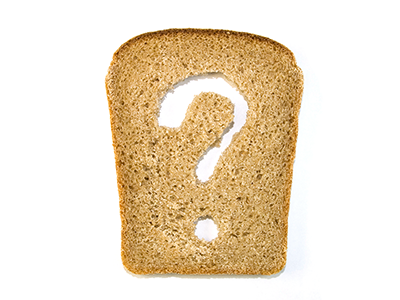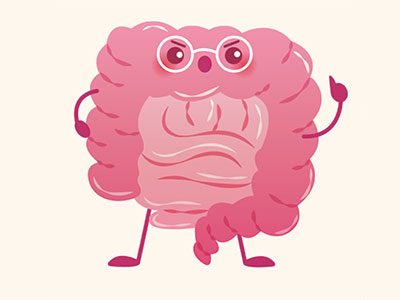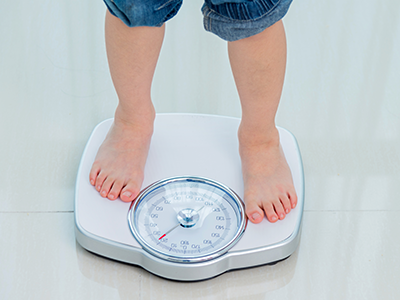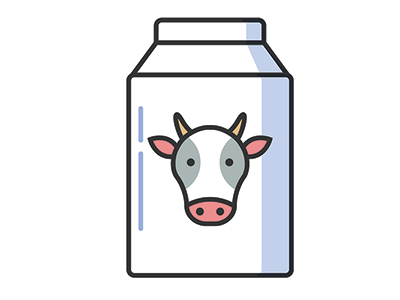Parents often complain that their child is not gaining weight and worry that there is some underlying medical reason. On the other hand, many parents are sometimes not aware that their child is falling on the growth chart until they are seen by their pediatrician. Poor weight gain becomes a problem when a child falls below the third percentile for weight on more than one consecutive measurement or if their weight declines and crosses at least two major percentile lines. When this happens, the child is now described as “failure to thrive” or FTT.
Other words can be used synonymously with “failure to thrive” such as “underweight”, “malnourished” or “undernourished”. Malnutrition is defined by the American Society for Parenteral and Enteral Nutrition (ASPEN), the Academy of Nutrition and Dietetics and the American Academy of Pediatrics as: Malnutrition (undernutrition) is an imbalance between nutrient requirement and intake, resulting in cumulative deficits of energy, protein, or micronutrients that may negatively affect growth, development, and other relevant outcomes.
What causes failure to thrive?
There are many reasons that cause failure to thrive or malnutrition. Although the majority children with failure to thrive do not have any illnesses, medical reasons for the malnutrition need to be ruled out.
Non-illness related malnutrition can be caused by:
- Environmental, socioeconomic or behavioral factors such as food insecurity, neglect, poverty, fad diets, culture, media influences and family dynamics.
Illness-related malnutrition can be caused by:
- Not getting enough calories from poor appetite, oral-motor dysfunction (dysphagia, tongue-tied, Pierre-Robin), behavioral feeding disorders, developmental delays.
- Not absorbing what is eaten from pancreatic insufficiency, celiac disease, cystic fibrosis, food allergies/intolerance, inflammatory bowel disease (IBD).
- Increased losses of nutrients such as children with congenital heart disease, chronic lung disease, hyperthyroidism, chronic kidney disease, chronic infection (HIV, parasites), auto-immune diseases.
- Altered utilization of nutrients seen in children with metabolic disorders and genetic conditions (Trisomy 18, 21, 13, Russell-Silver).
What is the treatment for failure to thrive?
The treatment depends on the underlying cause and usually involves several disciplines:
- Registered Dietician
- Pediatrician
- Psychologist or Social Worker
- Geneticist
- Gastroenterologist
- Feeding specialist – speech and/or occupational therapist
- Otolaryngologist (ENT)
Depending on your child’s past medical history and symptoms, your health care provider may order tests including:
- Blood tests looking for inflammation, infections, diseases
- Stool tests looking for inflammation, malabsorption, internal infections
- Endoscopies with biopsies
- Radiological imaging such as Upper GI, abdominal ultrasound
- Feeding evaluations with speech and/or occupational therapists
- Swallow studies such as modified barium swallow (MBS) or video fluoroscopic swallowing study, and/or fiberoptic endoscopic evaluation of swallow (FEES)
- Sweat test
- Genetic testing
While your child is undergoing treatment for underlying problems, it is important for them to get nutritional support as soon as possible to prevent complications. Some of the ways to increase caloric intake:
- Additives to food such as oils, margarine, butter, creams, Duocal, Benecalorie
- Formula supplements which provide complete nutrition such Pediasure, Nutren, Boost
- Real food supplements such as blenderized home food or packaged formulations
- IV nutrition
If your child is unable to eat for any reason, they might need a feeding tube so that they can take nutrients directly to their stomach or intestines such as:
- Nasogastric tubes that go from the nose to the stomach
- Gastrostomy tubes that are inserted through the abdominal wall into the stomach
- Jejunostomy tubes that go directly into the intestines
What happens if my child does not get treatment and stays failure to thrive or malnourished?
Possible complications from failure to thrive include:
- Stunted growth or short stature
- Behavioral problems
- Developmental delays
- Brain development problems leading to intellectual disabilities
- Fatigue, excessive sleepiness
- Frequent infections
Take home message:
Make sure to bring your child in for regular checkups at your pediatrician so that their growth can be monitored. If your child has failure to thrive, start the process of finding out the cause so that treatment can be started early, and complications can be prevented.
 https://riseandshine.childrensnational.org/wp-content/uploads/2023/11/ketogenic-foods-feature.png
300
400
Rise and Shine
https://riseandshine.childrensnational.org/wp-content/uploads/2017/11/childrens_riseandshine_logo.jpg
Rise and Shine2023-11-16 15:06:312023-11-16 15:15:01Using ketogenic diets to manage seizures
https://riseandshine.childrensnational.org/wp-content/uploads/2023/11/ketogenic-foods-feature.png
300
400
Rise and Shine
https://riseandshine.childrensnational.org/wp-content/uploads/2017/11/childrens_riseandshine_logo.jpg
Rise and Shine2023-11-16 15:06:312023-11-16 15:15:01Using ketogenic diets to manage seizures


 Bernadette G. Diez, FNP-C is a nurse practitioner at PSV on the Gastroenterology, Hepatology, and Nutrition team. She received her master’s in nursing at Marymount University.
Bernadette G. Diez, FNP-C is a nurse practitioner at PSV on the Gastroenterology, Hepatology, and Nutrition team. She received her master’s in nursing at Marymount University.


















Leave a Comment
Want to join the discussion?Feel free to contribute!